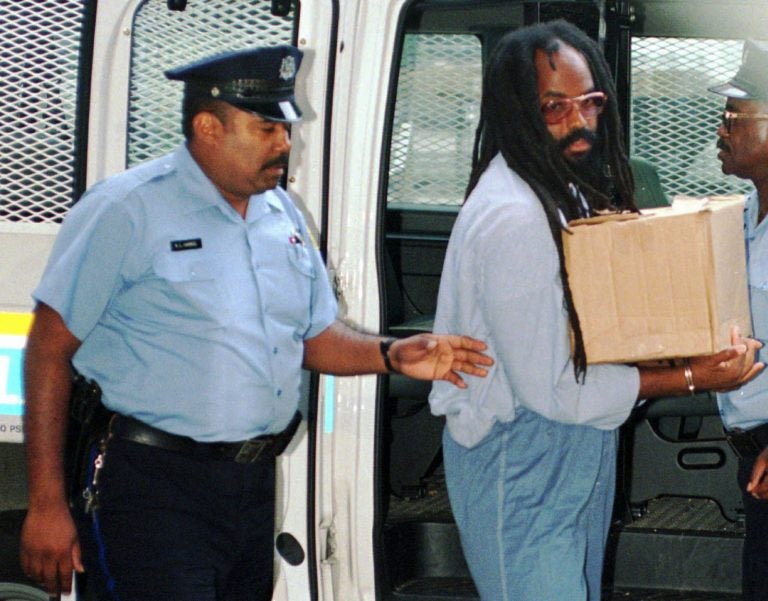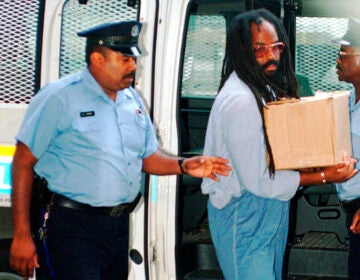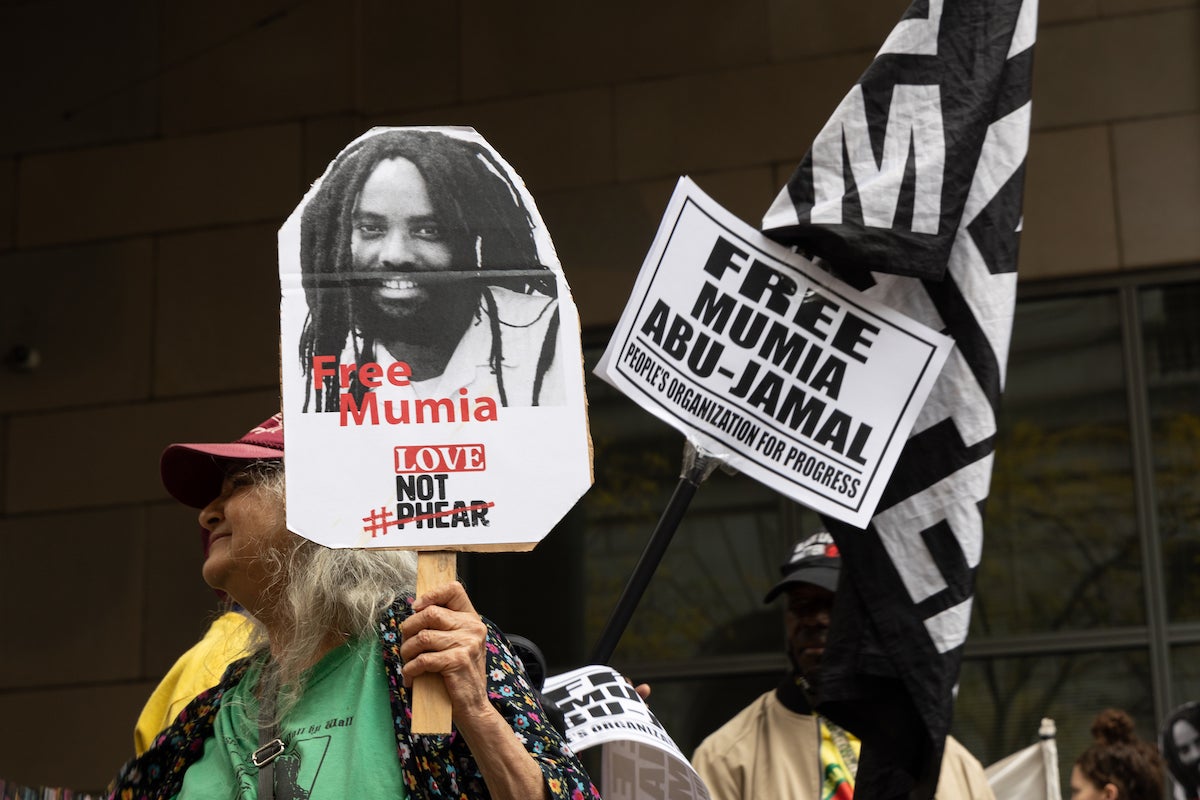Mumia’s fight to appeal in judge’s hands
After two years of court dates, a Philadelphia judge will now decide whether Mumia Abu-Jamal will get another chance to appeal his 1982 conviction.

In this July 25, 1995 file photo, Mumia Abu-Jamal, convicted of killing a policeman, arrives at Philadelphia's City Hall. (Nanine Hartzenbusch/AP Photo, File)
After two years of court dates, a Philadelphia judge will now decide whether Mumia Abu-Jamal – who is now serving a life sentence for the murder of Philadelphia police Officer Daniel Faulkner – will get another chance to appeal his 1982 conviction.
“You’ll hear from me shortly,” said Common Pleas Court Judge Leon Tucker during Monday’s brief hearing, scheduled to give Abu-Jamal’s lawyers time to present additional evidence for Tucker to consider before ruling on the high-profile, emotionally-charged case.
There wasn’t any new evidence, so Tucker is teed up to make a decision he has publicly called “difficult” based on the record he has had before him for a couple of months. It’s unclear when he will make his ruling.
Abu-Jamal’s odds hinge on how Tucker interprets the actions of former Pennsylvania Supreme Court Justice Ronald Castille who also served as Philadelphia District Attorney earlier in his career.
Abu- Jamal’s lawyers have argued that Castille should have recused himself when their client’s case went before the high court because Castille fought Abu-Jamal’s initial appeal when was district attorney.
They also said Castille personally pushed for former Pennsylvania Gov. Robert Casey to sign the execution warrants for death row inmates convicted of murdering a police officer.
In a 1990 letter to Casey, Castille urges the governor to “send a clear and dramatic to all cop killers.” The second page of the letter includes the names of nearly a dozen death row inmates, excluding Abu-Jamal, at the time in the midst of his direct appeal.
“There’s lots of reasons to be concerned about Ron Castille’s neutrality when he became a Supreme Court justice,” said defense attorney Judith Ritter during a hearing in October.
Prosecutors say there’s no evidence proving Castille had a “personal significant involvement” in Abu-Jamal’s case, the legal hurdle Tucker must consider before deciding whether Castille had a conflict of interest.
Abu-Jamal, who was not in court Monday, has always maintained his innocence in the fatal shooting of Faulkner.
WHYY is your source for fact-based, in-depth journalism and information. As a nonprofit organization, we rely on financial support from readers like you. Please give today.





